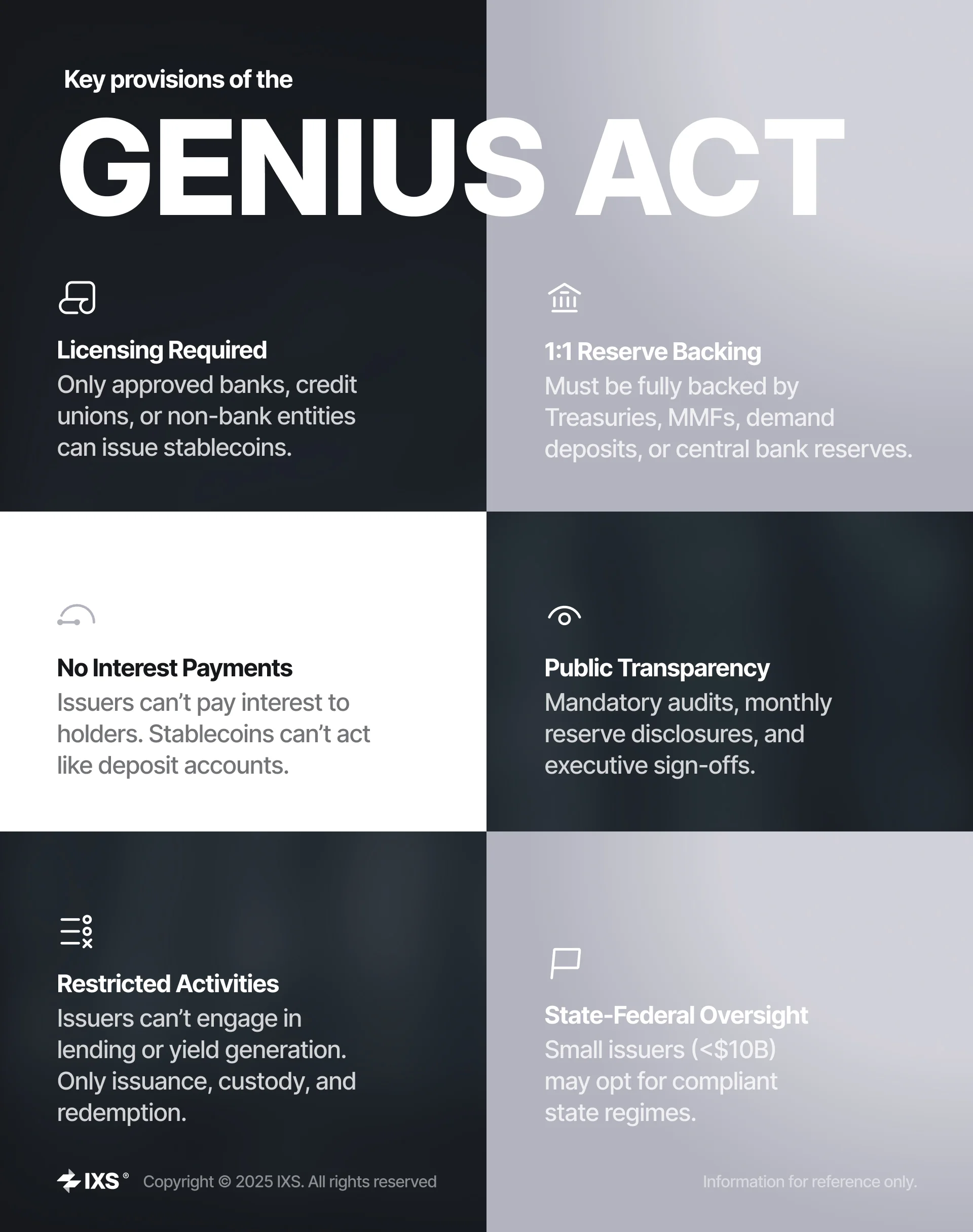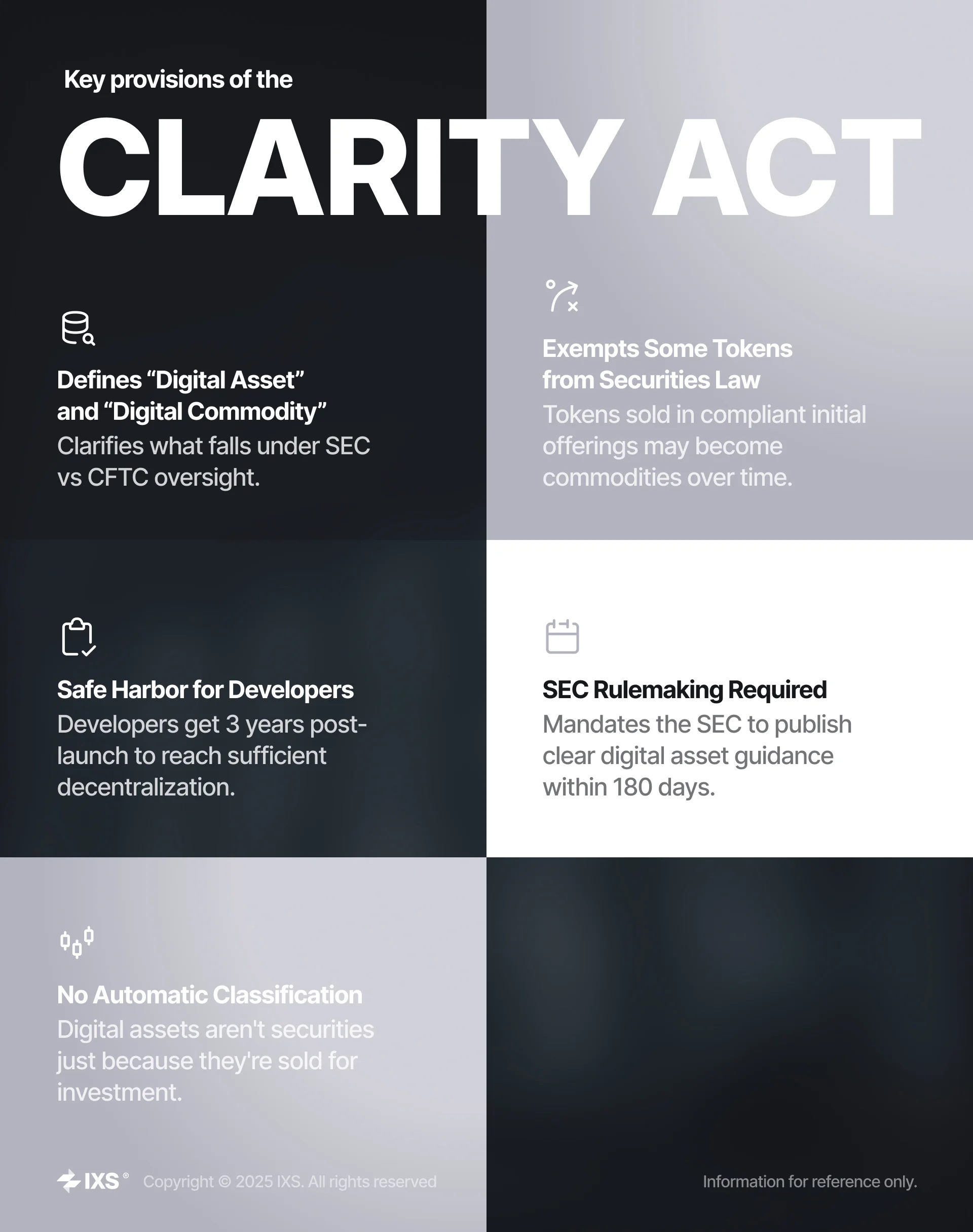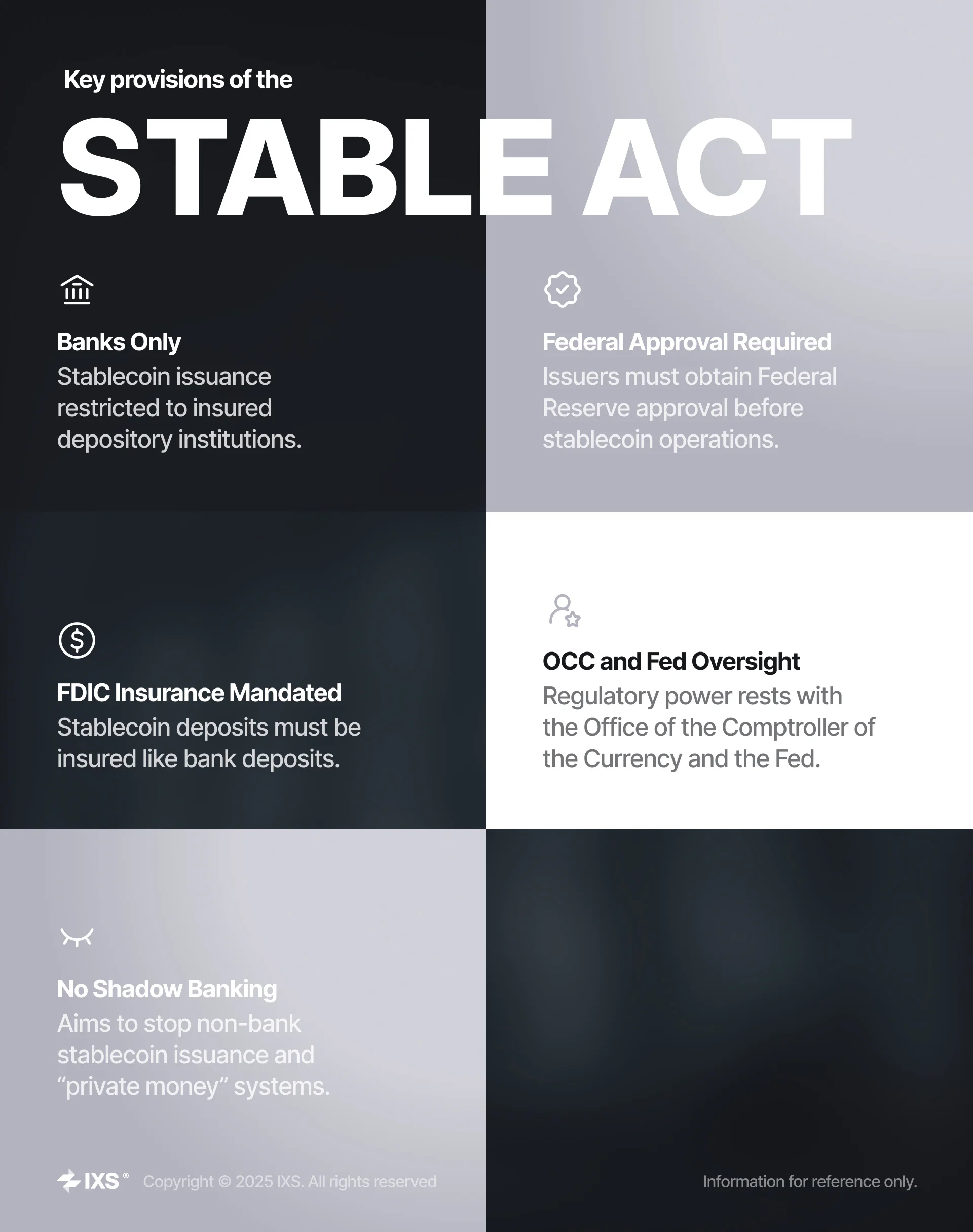U.S. regulators have taken several new steps this year that could potentially affect how tokenized assets are issued, traded, and classified.
From a new bipartisan stablecoin bill (GENIUS Act) to the SEC’s growing attention on RWA tokenization, the message is becoming clearer: Washington is preparing for a financial system where traditional assets move on-chain.
This article breaks down what recent U.S. regulatory actions signal and why institutions should pay attention.
Key takeaways
.webp)
A Shift in Tone: The SEC’s Tokenization Roundtable
The tone started shifting earlier this year, when the SEC hosted a dedicated Tokenization Roundtable on May 12, led by Commissioner Mark Atkins. The discussion happened amid securities increasingly migrating from traditional databases to blockchain-based ledger systems.
The roundtable highlighted a few key points:
- Tokenized assets are not all the same. RWAs, stablecoins, and native crypto each raise different issues.
- Legal enforceability and secondary market compliance are still friction points.
- Regulators are now distinguishing tokenization as a financial infrastructure trend, not just a crypto trend.
“Just as the shift to digital audio revolutionized the music industry, the migration to on-chain securities has the potential to remodel aspects of the securities market by enabling entirely new methods of issuing, trading, owning, and using securities.” - Paul S. Atkins stated in his remark.
The Tokenization Roundtable marks one of the first formal U.S. regulatory discussions focused specifically on tokenization. It signals that tokenization is being viewed less as a crypto experiment and more as a structural shift in financial infrastructure.
Crypto Week 2025: Three New Bills and Their Potential Impact
During Crypto Week in July, U.S. lawmakers introduced or advanced three major pieces of legislation: GENIUS Act, STABLE Act and CLARITY Act, aimed at bringing digital assets under clearer regulatory oversight.
1. GENIUS Act: Stablecoin Licensing and Interest Prohibition
The GENIUS Act is focused on regulating stablecoin issuers. It requires issuers to obtain federal licenses and prohibits the payment of interest to holders.

What it could mean for tokenization:
While the GENIUS Act doesn’t directly regulate tokenized RWAs, it has a few indirect implications:
- Yield Access: With restrictions on yield-generating use cases for stablecoins, institutions seeking returns may shift toward tokenized RWA products.
- Stablecoins as Payment Rails: Licensed stablecoins could serve as safer on-ramps into tokenized asset markets, especially for settlement and subscriptions.
- Long-Term Outlook: If reserve assets for stablecoins expand to include tokenized government securities, it could create deeper integration between stablecoins and tokenized public debt.
2. CLARITY Act - Legal Clarity for Digital Assets
The CLARITY Act proposes a legal definition of digital commodities and securities. It focuses on clarifying which tokens fall under SEC or CFTC oversight.

The CLARITY Act doesn't directly target tokenized RWAs, but it has indirect implications:
- Issuers of RWA tokens (especially those structured as utility or payment tokens) may benefit from the Act's safe harbor and clearer classification criteria.
- However, asset-backed security tokens (like tokenized bonds or equity) will likely remain under existing securities laws.
- The Act is more relevant for protocol and token developers than regulated platforms like IXS, but it could shape how new tokenized asset structures are evaluated.
3. STABLE Act - Federal Control Over Stablecoin Issuance
The STABLE Act seeks to bring stablecoin issuance under federal banking regulation, requiring issuers to be insured banks with direct Federal Reserve approval.

What it could mean for tokenization:
The STABLE Act focuses on payment stablecoins and the banking framework around their issuance. It does not directly address tokenized securities or real-world assets. As such, it has limited direct implications for tokenization, unless stablecoins are involved in the settlement layer or transaction flow. In those cases, stricter issuance rules may shape which stablecoins institutions choose to interact with.
Project Crypto: Making America The Crypto Capital of The World
On July 30, 2025, the U.S. SEC launched Project Crypto, an initiative to modernize the regulatory framework for crypto assets and position the U.S. as a global leader in the digital economy. According to CNBC, the announcement comes amid rising investor interest in tokenization - the process of issuing digital representations of real-world assets, publicly traded securities, or other forms of value on a blockchain network.
In his crypto policy address, SEC Chair Paul Atkins stated: “For those crypto asset transactions that are subject to these securities laws, I've asked the staff to propose purpose fit disclosures, exemptions, and safe harbors. Our goal should be that issuers no longer exclude Americans from their distributions to avoid legal complexity in lawsuits, but instead choose to include Americans to enjoy legal certainty in an accommodating regulatory framework.”
American Leadership in the Digital Finance Revolution - Chairman Paul Atkins. Source: SEC
For the RWA sector, Project Crypto signals a move to clarify and adapt US regulations, aiming to enable the compliant distribution of tokenized assets to American investors and foster innovation.
Why This Matters for Tokenization
Most institutional tokenization projects today still happen outside of the U.S., partly because regulatory clarity is lacking. Without clear rules around asset classification, custody, and secondary trading, financial institutions remain cautious, even as interest grows.
But recent U.S. efforts show regulators are beginning to separate payment stablecoins from investment-grade tokenized assets, like Treasuries or private credit. That distinction is key. It could open the door for more formal treatment of tokenized securities and structured assets, especially if future rulemaking reflects that separation.
This shift may not happen quickly. But it’s worth tracking closely.
What Institutions Should Watch
Even without full rulemaking, there are signs that tokenized RWAs are being viewed separately from retail-facing crypto tokens. These signals matter:
- Stablecoins may face tighter restrictions: This narrows their utility for generating institutional yield. RWA tokens may fill the gap, especially tokenized Treasuries and credit products.
- Securities tokenization may get clearer classification: The CLARITY Act and SEC discussions suggest eventual definitions for tokens representing regulated assets.
- Legal enforceability is a top concern: U.S. regulators continue to emphasize investor protection, disclosure, and secondary market controls. Tokenized products will need to meet these standards.
- Offshore activity is still ahead: Other markets (e.g., Singapore, UK, Hong Kong) remain further along in licensing and rule development. The U.S. is playing catch-up, but it’s starting to move.
Final Thoughts
None of the recent U.S. policy efforts guarantee near-term changes for tokenized RWAs. But for institutions evaluating tokenization strategies, the message is this: U.S. regulators are starting to distinguish payment tokens from securities and infrastructure-grade digital assets.
That matters. It suggests tokenization could eventually find a defined regulatory path, separate from broader crypto regulation. That could be a turning point.
Have questions? Reach out to the IXS team to discuss your tokenization strategy.